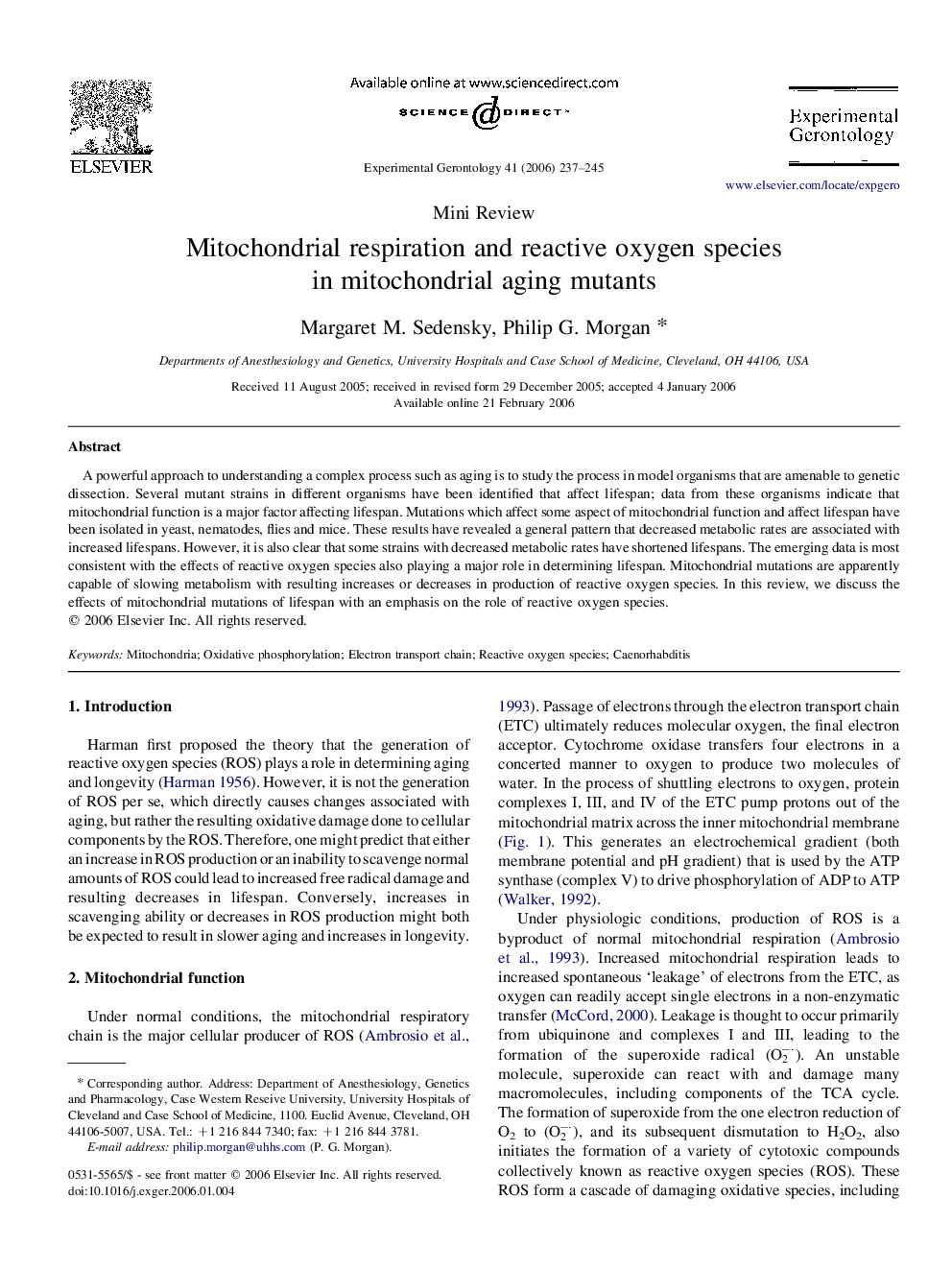| Article ID | Journal | Published Year | Pages | File Type |
|---|---|---|---|---|
| 1907485 | Experimental Gerontology | 2006 | 9 Pages |
A powerful approach to understanding a complex process such as aging is to study the process in model organisms that are amenable to genetic dissection. Several mutant strains in different organisms have been identified that affect lifespan; data from these organisms indicate that mitochondrial function is a major factor affecting lifespan. Mutations which affect some aspect of mitochondrial function and affect lifespan have been isolated in yeast, nematodes, flies and mice. These results have revealed a general pattern that decreased metabolic rates are associated with increased lifespans. However, it is also clear that some strains with decreased metabolic rates have shortened lifespans. The emerging data is most consistent with the effects of reactive oxygen species also playing a major role in determining lifespan. Mitochondrial mutations are apparently capable of slowing metabolism with resulting increases or decreases in production of reactive oxygen species. In this review, we discuss the effects of mitochondrial mutations of lifespan with an emphasis on the role of reactive oxygen species.
